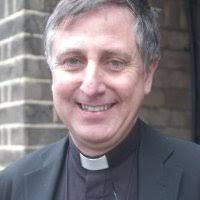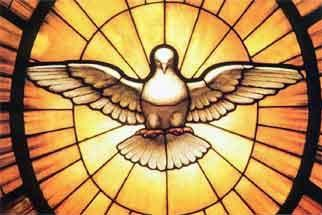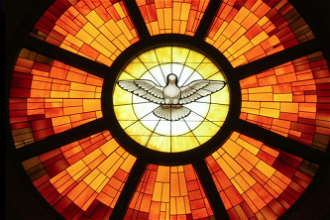Text: President's Address to Catholic Theological Association

Revd Dr Ashley Beck
The Revd Dr Ashley Beck gave the following address to the Catholic Theological Association meeting at St Mary's University on 5 September. Dr Beck is President of the CTA.
In the past year the association has continued to be represented on the main umbrella group for those teaching theology and religious studies in higher education, TRS-UK; we have circulated for you the draft new code of conduct for the running of conferences.
This annual meeting a year ago in Swanwick requested that we continue two strands of action: ongoing reflection about the issue of abuse in the Church, and the building up of support networks in relation to the future of theology. The first we have done through some of the speakers in the first area of Tuesday's short papers; for the second we followed up the meeting which took place in Luton in January 2018 with a day session at Mount Street in July, which gathered a good selection of people from different institutions. You don't need me to tell you that most of the realities, connected to the statistics about the study of theology and religious studies in schools which Anthony shared with us on Monday, are not good. While there are signs of growth and resilience in some institutions, elsewhere there is contraction and insecurity. We need to work at how our association can provide more mutual support to theologians who in many places face an uncertain future. I am grateful to The Tablet for publishing an article by me in March which explored some of these issues.
Theological language, how we speak of the things of God, has been our theme. I was very struck on Monday by Theo Hawksley's image during the inter-reaction with Anthony's lecture, of Teaching English as a Foreign Language as a way of describing how we are now operating. It seems to me that this applies not only to teaching theology and religious studies in schools, universities and elsewhere, but to our overall engagement as theologians with issues facing society and the Church. In both settings it seems that the very idea of speaking theologically is viewed with suspicion or incomprehension. That we should encounter this in society, more and more divorced from the practice of religion or even our religious roots, should not surprise us; that we should experience this in the Catholic Church is surely profoundly shocking.
You don't need to look much further than the political crisis which has been unfolding this week while we have been gathered. To suggest to many Catholics, even clergy, that how we look at this countries relationships with the rest of Europe should be guided by that element within the Christian moral tradition which we call Catholic Social Teaching, or that how we look at the secular state should be enlightened by St Augustine of Hippo, or that migration has to be seen as a moral issue, rooted in what we teach about the charity and love, or that Christian teaching might have something to say about truth-telling among politicians and others in public life - including people who claim to be Catholics - all these things, and more, cause the eyes to glaze over. By and large people won't engage in the argument or even challenge the sort of things which I have asserted: you are simply dismissed. Indeed a theological approach to Brexit often causes offence; you're just another of the 'experts' attacked by Michael Gove during the 2016 referendum campaign. Sadly in the Catholic community in the UK this is further nurtured by a deep anti-intellectualism, a suspicion of theology in itself, at all levels. And yet we have to assert that all these things are theological; an absence of theological language shows an absence of God.
And so it is that as the country faces what is surely the most serious moral and political crisis since the Second World War, and when many of our own people and others are seeking moral leadership, the churches seem to have virtually nothing to say. What makes this vacuum even more alarming is that all that has happened in the last three or four years points to yet another theological reality: the presence of moral evil. I think the first book my friend David Brown wrote, who was with us until early this morning, was called Choices (1983; it remains one of the most compelling critiques of the practice of nuclear deterrence), intended partly to try and improve the standard of teaching about the teaching of Ethics in Anglican theological colleges, but the very title of the book can help us understand where we are. People, communities, voters, politicians, make choices. Moreover ethical choices are linked and have serious consequences. Ethical reflection, drawing on our traditions, helps us understand why political and public life has become so toxic and aggressive. If people in a referendum make choices which are fuelled by suspicion and fearfulness, by nationalism and insecurity, the problems don't go away; there are consequences. Real moral reflection on Brexit can show that the poison and nastiness which have got so much worse than many of us feared in June 2016 are not incidental; they are not, as in reflection about 'double effect', an unintended consequence or side effect of an action. They can be seen as intrinsic to what the whole project was about. In his warnings about populist nationalism in the world - and Brexit is part of this - Pope Francis has not been afraid to point this out. Our Lord's shrewdness in the Sermon on the Mount, when he says 'A bad tree cannot produce good fruit (Matthew 7:17), is surely the text for today's Britain. Moral evil in society is about the theological idea we call sin - much of what we see in our country because of Brexit is about corporate, social and structural sin, linked to sinfulness in the hearts of men and women, brought about also by ignorance: but ignorance can sometimes be culpable.
Sometimes in these meetings we have tried, seek leadership about specific moral issues from others, from the bishops in this country. This association is committed to trying to support the leaders of our community and even offer advice; but it seems to me that theologians have a leadership responsibility ourselves. All of us in our different ways are trying to tell the people we teach or work with that the language of God, theological language (even if it is a form of TEL) has something to say about the whole of life. If we push the language of God out of this or that crisis or moral issue, we're pushing God out. Archbishop Desmond Tutu once said, at the height of his struggle with Apartheid, and referring to the political struggle in his country, that if these things are not God's whose are they? If we really believe that leadership in the Church is not the exclusive preserve of those ordained to sacred office, then as a community within the Church, as Catholic theologians, we need to show leadership ourselves at this time, even if it feels as if we're in what feels like, to use Michael Kirwan words, a 'land of screams'.
LINKS
See also: ICN 16 September 2019 - Talking about God - www.indcatholicnews.com/news/37898
Catholic Theological Association - www.ctagb.org.uk/


















